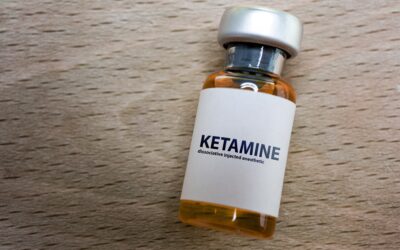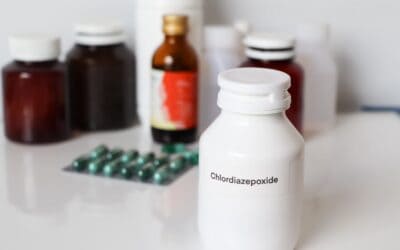Opiate Detox Center Memphis, TN
Opiate Detox Center
At Detox West Tennessee, we understand opiate drugs are highly addictive and that quitting can be very hard. We are dedicated to helping those struggling with opiate use disorder overcome their addiction at our opiate detox in Memphis, Tennessee. Furthermore, we know people start using opiates for a variety of reasons. For instance, some people have used them recreationally, and some have had legitimate prescriptions. Additionally, people think they’ll be judged if they ask for help, and also fear the withdrawal process.
Get Confidential Help Today
Opioid use disorder is a medical condition that deserves professional and compassionate treatment. Getting help for this doesn’t mean someone is weak or immoral—it just means they need help. With our support, we can make the transition into recovery as comfortable and painless as possible.
What are Opiates?
Opiates are made from the opium poppy plant and refer to drugs such as heroin, morphine, and codeine. People often interchange the terms ‘opiates’ and ‘opioids,’ but there is a difference between them. Opioids refer to synthetic or man-made, opiate-like drugs. However, their effects are almost identical.
Common opiate drugs include:
- Opium
- Morphine
- Codeine
- Heroin
Opiates have a high potential for misuse and are incredibly addictive. Additionally, they have a significant influence on our brain and body chemistry. Opiate drugs work by binding to naturally occurring opiate receptors in the brain. Users eat, snort, inject, or smoke opiates. When consumed, they have euphoric and sedative properties. By binding to opiate receptors in the brain that numb out physical sensations, they are potent painkillers.
Opiate addiction can happen quickly. Moreover, these drugs cause neural changes in the brain that increase the risk of addiction after just one use. The Centers for Disease Control and Prevention (CDC) report that opiate addiction is a growing problem in the U.S. and worldwide. Additionally, the National Institutes on Drug Abuse (NIDA) reports that opiate and opioid misuse and addiction is “a serious national crisis that affects public health as well as social and economic welfare.”
Lastly, the Journal of Substance Abuse Treatment states that prescription opioids are among the most commonly abused drugs in America. People first take them to manage pain. Despite this, they are highly addictive and should be taken under strict guidelines and doctors’ recommendations. One of the leading causes of opiate addiction in the United States is the prior use of prescription opioid painkillers. This could be a legitimate prescription from a doctor or bought illegally from a dealer.
Heroin is much cheaper than illegally bought prescription opiates. Therefore, if people can’t get their usual drugs, it is common to use heroin as a substitute. Thus, heroin’s higher potency means that people become addicted faster.
What is Opiate Addiction?
Opiates make users feel relaxed and produce feelings of euphoria and warmth. The effects can be so appealing that users soon find themselves craving more of the drug. Thus, the more they use, the greater their body’s tolerance to the drug’s effects. As tolerance builds, someone needs greater doses to achieve the desired effects. Using more opiates in greater dosage and frequency creates a physical dependence.
When the body becomes physically dependent on opiates, it is extremely difficult to stop. Because of this, an opiate-dependent person will struggle to function in daily life without the use of opiates. As a result, dependence soon leads to addiction. Opiate addiction is a compulsive need to use opiates and an inability to stop using despite clear negative consequences. These consequences could involve:
- Losing a job
- Relationship breakdowns
- Mental and physical health consequences
At Detox West in Memphis, Tennessee, we have seen the havoc that opiate addiction wreaks on a person’s life. We have also seen inspiring and life-affirming recovery stories in many of our clients. While opiate addiction can consume your life temporarily, it does not have to be permanent. Treatment and support for opiate addiction recovery are available. Here at Detox West Tennessee, we help clients begin their recovery journey by offering a fully medically-supervised detox program for those looking to overcome opiate use disorder in Memphis or Collierville, Tennessee. Detox is a crucial step on the road to recovery.
What Happens When I Admit to an Opiate Detox Center?
When you admit to an opiate detox center, your first step will be a health assessment. First, medical staff at the opiate detox center need to know the severity of your addiction. Second, they will also need to know about any co-occurring physical and mental health disorders you have. This assessment ensures that you get the best care during detox.
Common assessment questions include:
- When did you first begin using opiates?
- Have you tried to quit in the past? What happened?
- Are you using opiates for chronic pain due to a medical condition?
- How do you use opiates (i.e, pills or injections)?
- What types of opiates do you use?
- Do you have any underlying mental health disorders or trauma in your past?
- How frequently do you use opiates?
- Do you use opiates with any other substances, including alcohol?
These questions will help your detox team understand your addiction and prepare you for your detox. Your detox program and needs will vary based on the severity of your addiction and your overall health. When you admit to an inpatient detox center, expect to remain at the facility for about a week or 2. After you stop using opiates, you will have withdrawal symptoms that can be mild to severe.
Opiate Withdrawal
Withdrawal refers to the distressing and uncomfortable symptoms experienced by those who have developed a dependence on opiates. Typically, withdrawal typically begins within 6 to 12 hours of last use. The symptoms peak within 72 hours and can last for up to 10 days. Withdrawal is one of the leading reasons for relapse. Some people try to quit using opiates alone, but this can be dangerous.
Unmedicated opiate withdrawal is intense. It’s very tempting for people to return to opiate use to alleviate the symptoms. Returning to use can be fatal, as tolerance decreases when they stop using, increasing the overdose risk.
Opiate withdrawal symptoms include:
- Nausea, vomiting
- Insomnia
- Nightmares
- Mood swings
- Excessive sweating
- Aches and pains
- Diarrhea
- Anxiety
- High blood pressure
- Paranoia
- Restlessness
- Fatigue
- Intense cravings
The body naturally attempts to detoxify itself when we stop using a given substance. The process is highly uncomfortable and overwhelming. Doing it alone makes it even harder. Fortunately, people can detox in a safe and professional environment. Here at Detox West Tennessee, we support clients through the detox and withdrawal stages of recovery. Additionally, we use the latest evidence-based detox methods to make the detox and withdrawal process as safe and comfortable as possible.
How Long Does it Take to Detox from Opiates?
Detoxing from opiates can take about 1 to 2 weeks. Some might take longer than others depending on the unique characteristics of their opiate addiction.
Factors that influence the time to detox include:
- Overall physical health
- Co-occurring mental health disorders
- Frequency of opiate use
- Length of the addiction
- Dosage per use
- Using opiates along with other substances
The time in an opiate detox center will usually conclude once physical withdrawal symptoms go away. These can be intense and will usually peak within a few days after someone stops using them. However, the mental health symptoms of withdrawal can linger after detox–therefore, getting into rehab is critical for long-term recovery.
Opiate Detox Timeline
When someone detoxes from opiates, they can expect the following stages of an opiate detox timeline:
Early withdrawal symptoms: About 8 to 24 hours after someone has stopped using opiates, they should begin having withdrawal symptoms. The symptoms at this stage might feel uncomfortable, yet the early symptoms will generally be mild.
Peak withdrawal phase: The symptoms will intensify about 2 days after someone stops using. In fact, withdrawal symptoms worsen in severity until they peak by around day 3 of detox. During this stage, someone could need medical care to feel comfortable and get through this stage. They are at a high risk of relapsing during the peak phase.
Subsiding symptoms: The symptoms will gradually lessen in severity during the remainder of the time at an opiate detox center. Most of the physical symptoms will go away within about 1 to 2 weeks.
Drugs Used to Detox from Opiates
Detox from opiate drugs requires medical intervention. At our opiate detox center, we use the following FDA-approved medications to support opiate detox.
Methadone
Methadone is an opioid agonist. It binds to the same opioid receptors in the brain as opiate drugs such as heroin and codeine. To help, we prescribe methadone to help ease withdrawal symptoms. Over time, we gradually reduce the dosage in a process known as tapering. Tapering reduces the severity of withdrawal symptoms so the overall process is less overwhelming.
Buprenorphine
We prescribe buprenorphine to opiate-addicted clients to shorten the length of detox and to reduce the withdrawal symptoms. Thankfully, similar to methadone, buprenorphine supports long-term recovery maintenance.
Lofexidine
Lofexidine reduces the anxiety, agitation, pain, and cramping characteristic of opiate withdrawal. Methadone and buprenorphine help with maintenance. We use lofexidine to tackle these withdrawal symptoms and make life easier for the client during this vulnerable time.
Naltrexone
Naltrexone is an opioid antagonist. That means that it blocks the brain’s opioid receptors. As such, it prevents relapse. In fact, blocking the brain’s opioid receptors reduces one’s ability to achieve the desired effects of opiate drugs. In addition, we prescribe naltrexone in the later stages of detox. We do not prescribe it while opiates are still active in the system due to the potential health risks.
Benefits of Medically-Assisted Opiate Detox
SAMHSA explains that medically-assisted detoxification is the safest and most comfortable method of overcoming opiate use disorder. Some people try to stop using it by going ‘cold turkey’ which means stopping use without medical support. This method is unnecessary, uncomfortable, and more likely to lead to relapse. At Detox West in Memphis, Tennessee expertly trained clinicians supervise the opiate detox. Our staff monitors patients’ health throughout detox to make sure that they are safe and comfortable.
Additional benefits of medically-assisted opiate detox centers include:
- 24/7 support
- Medications to ease symptoms
- Avoid relapse triggers
- Focus on recovery
- Transition to drug rehab
- Safe and secure environment for detox
How Much Does it Cost to go to an Opiate Detox Center?
Opiate detox centers can vary in terms of costs based on the level of care patients need. For example, if someone uses medications during detox, then they can expect detox to cost more to cover the costs of prescriptions. Additionally, substance abuse treatment is considered an essential health benefit. Since detox is the first step in opiate abuse treatment, the insurance provider could cover some or all of the costs for detox. However, insurance carriers like Cigna and UHC will cover services that are deemed medically necessary, which includes drug rehab.
Contact the insurance company for more information about coverage for opiate detox. To add, someone can also contact any facilities they are interested in to discuss payment options and plans. Some facilities can help with any out-of-pocket expenses if someone doesn’t have the money to cover it. Always consider the costs of not receiving treatment as well.
Opiate addiction can negatively impact someone’s physical health and lead to issues maintaining employment. Unfortunately, legal issues can arise if someone is abusing illegal substances. Fines and legal fees can add up quickly. Therefore, opiate detox is worth the investment to prevent the severe financial consequences of addiction.
Begin Opiate Detox in Memphis, TN
If you or a loved one are struggling with opiate use disorder, we can help. When you come to our opiate detox center in Memphis, Tennessee, we prepare you for the rest of your recovery. Our detox programs begin with an initial assessment to determine your current state of health. We accept various insurances such as UnitedHealthcare, Aetna others. Additionally, we offer treatment near those in Jonesboro, Arkansas.
With this information, we can formulate the most appropriate and effective detox program for your needs. To add, we have many treatment services including holistic therapy available to support your recovery. Please don’t hesitate to contact us today to receive the help you need. We deliver each program with compassion and non-judgment in a safe and comfortable environment. To get started, visit our admissions page and contact us today.
Program Links
Related Articles
Ketamine and Alcohol Risks and Effects
Drug and alcohol use is dangerous on all accounts. Still, combining ketamine and alcohol can lead to an increasing...
How Does Meth Abuse Impact the Brain?
The human brain consists of a complex balance of neurotransmitters that control essential functions such as movement,...
Is Alcohol the Most Dangerous Drug?
Many people believe heroin or crystal meth are the most dangerous drugs to use. Fentanyl, heroin, crystal meth, and...
The Effects of Amphetamine Abuse
A disturbing trend in prescription drug abuse connects with the rising number of healthcare providers relying on...
Signs of Librium Addiction and Withdrawal
Librium is the well-known brand name for the generic drug chlordiazepoxide. Librium is a benzodiazepine class of drugs...
Visit us at
370 North Cumberland St.
Jackson Tennessee, 38301
Have a Question? Call us
Hours
- Open 24 hours







